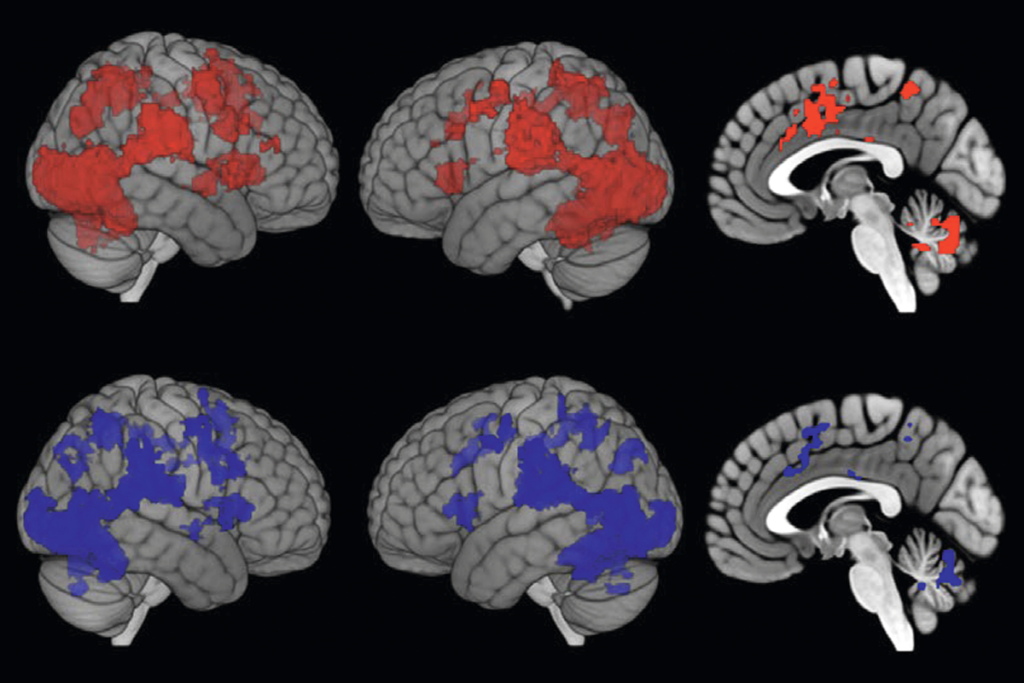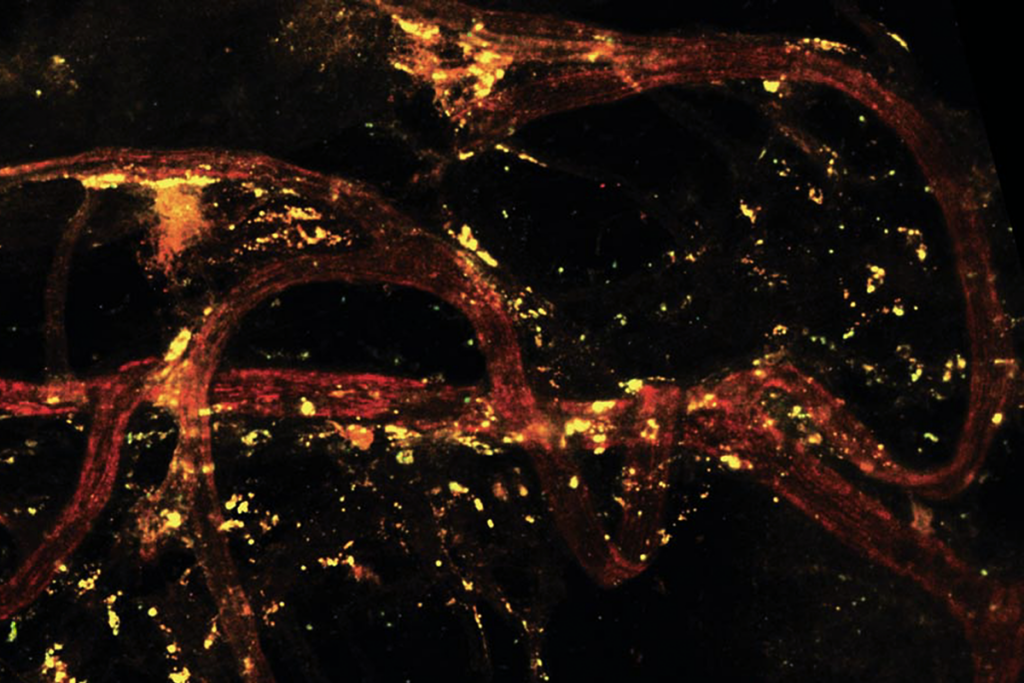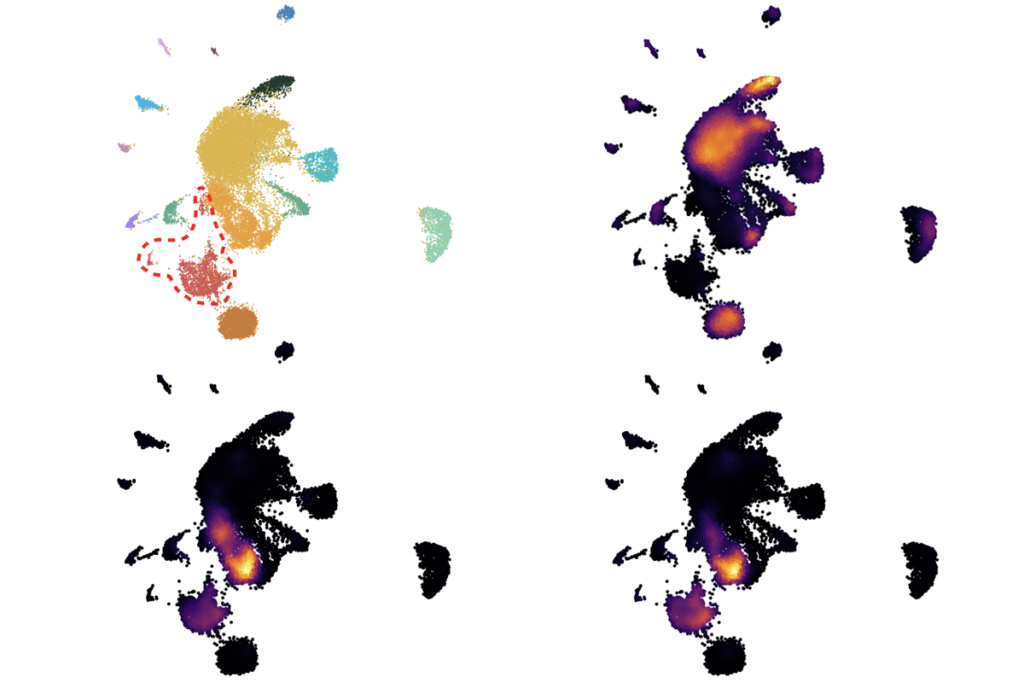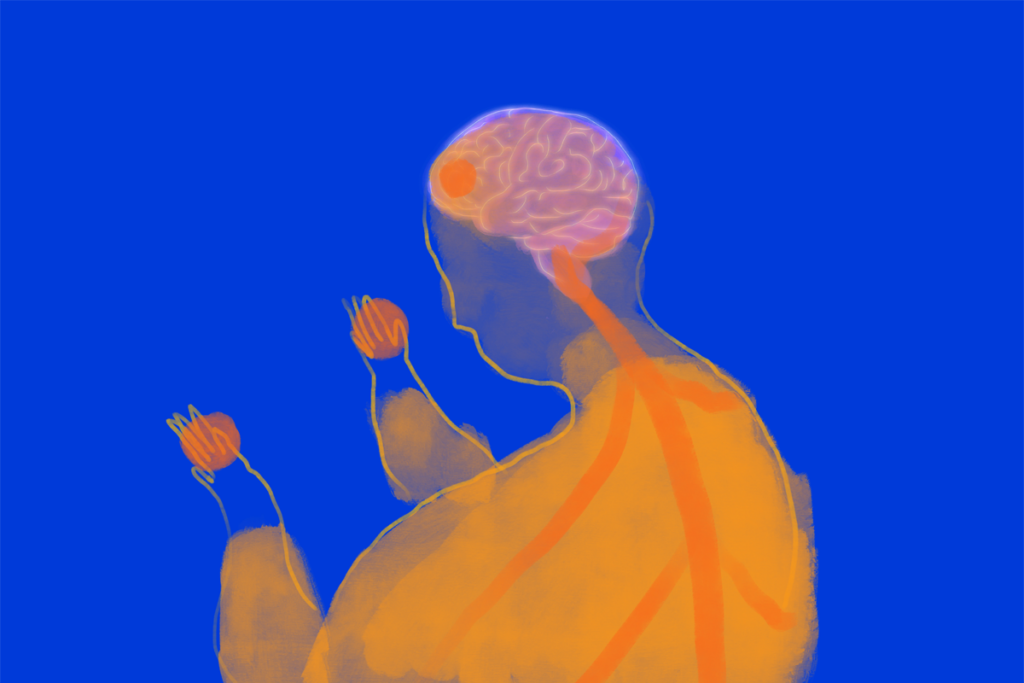Neuroimmunology
Recent articles
What are the fastest-growing areas in neuroscience?
Respondents pointed to computational neuroscience, systems neuroscience, neuroimmunology and neuroimaging, among other subfields.

What are the fastest-growing areas in neuroscience?
Respondents pointed to computational neuroscience, systems neuroscience, neuroimmunology and neuroimaging, among other subfields.
Human brain may anticipate looming contagion
Seeing a visibly ill avatar in virtual reality activates a neuroimmune pathway in brain areas related to peripersonal space and prompts an immune response, a small new study suggests.

Human brain may anticipate looming contagion
Seeing a visibly ill avatar in virtual reality activates a neuroimmune pathway in brain areas related to peripersonal space and prompts an immune response, a small new study suggests.
Immune cells block pain in female mice only
Regulatory T cells in the spinal meninges release endogenous opioids in a sex-specific manner, new work shows.

Immune cells block pain in female mice only
Regulatory T cells in the spinal meninges release endogenous opioids in a sex-specific manner, new work shows.
Null and Noteworthy: Reanalysis contradicts report of immune memory in astrocytes
The analysis, which has not yet been peer reviewed, attributes the finding to misidentified immune cells instead.

Null and Noteworthy: Reanalysis contradicts report of immune memory in astrocytes
The analysis, which has not yet been peer reviewed, attributes the finding to misidentified immune cells instead.
Rethinking mental health: The body’s impact on the brain
Mounting evidence illustrates how peripheral molecules can influence brain function, offering new therapeutic targets.

Rethinking mental health: The body’s impact on the brain
Mounting evidence illustrates how peripheral molecules can influence brain function, offering new therapeutic targets.
Explore more from The Transmitter
Dendrites help neuroscientists see the forest for the trees
Dendritic arbors provide just the right scale to study how individual neurons reciprocally interact with their broader circuitry—and are our best bet to bridge cellular and systems neuroscience.

Dendrites help neuroscientists see the forest for the trees
Dendritic arbors provide just the right scale to study how individual neurons reciprocally interact with their broader circuitry—and are our best bet to bridge cellular and systems neuroscience.
Two primate centers drop ‘primate’ from their name
The Washington and Tulane National Biomedical Research Centers—formerly called National Primate Research Centers—say they made the change to better reflect the breadth of research performed at the centers.

Two primate centers drop ‘primate’ from their name
The Washington and Tulane National Biomedical Research Centers—formerly called National Primate Research Centers—say they made the change to better reflect the breadth of research performed at the centers.
Post-infection immune conflict alters fetal development in some male mice
The immune conflict between dam and fetus could help explain sex differences in neurodevelopmental conditions.

Post-infection immune conflict alters fetal development in some male mice
The immune conflict between dam and fetus could help explain sex differences in neurodevelopmental conditions.